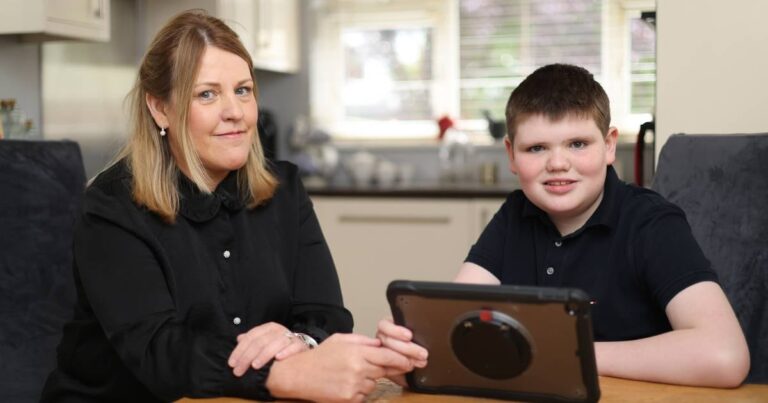Sylvanna McDaniel’s son Dara, 13, is due to finish sixth grade next week but will not be eligible to start middle school next September.
“There were seven applications, seven open nights, seven rejection letters, seven closed doors and seven agonizing months of waiting,” McDaniel says.
“At this stage, he is keenly aware that he has no place in school. He asks us every day and we cannot answer every day. I got a note from his teacher the other day saying that he was upset in class… so we try not to talk about it in front of him.”
Dara, from Clonsilla in Dublin, is one of 17 children in Dublin 15 postal district who will have no place in primary or secondary school next year.
All of these children have been diagnosed with autism and require special classes or special school placements to meet their assessed needs.
Government ministers have promised that all children who need a place at school will be given one, and education authorities now face a last-minute struggle to secure them.
Local activist Sile Parsons said the irony was that the children’s special educational needs had been known to authorities for years.
“It’s no secret,” she says. “Kids who need post-secondary special education qualifications have been in primary school for eight years…”
Even if a site for the school could be found, Parsons said “rush jobs” are not the solution.
“Kids are overwhelmed because there’s no time for a proper transition, and schools are pressured to open special classes without adequate training or resources,” she says. “Staff are panicking, parents are panicking, and kids are taking advantage. No one gets off to a good start. But with the right planning, it can work out surprisingly well.”
She and other activists say the crisis is due to a lack of future planning by the National Council on Special Education (NCSE), understaffing at the agency and a lack of political will to address these issues.
“We met in 2022 with then Minister of State Josepha Madigan and NCSE officials and were told this would never happen again, and yet here we are,” she said.
Affected parents are due to gather outside Leinster House on Thursday to draw attention to the shortages as part of a protest organised by local Socialist councillor Ruth Coppinger.
In a statement, NCSE said it was aware of a large number of children in Dublin 15 hoping to enter care in September 2024.
“NCSE is working closely with the Ministry of Education and a number of school sponsoring organisations to increase funding through September 2024,” the statement said.
A spokesman said the organisation was contacting parents “at least once a week” to keep them updated and would “continue to do so”.
The recently appointed Minister for Special Education, Hildegard Norton, said ensuring access to education for children with special educational needs was “a priority for this Government”, with more than 360 new special classes approved for the next academic year.
A recent survey by the region’s school principal estimated that there are more than 100 children in inappropriate schools. These are young people who struggle to learn in mainstream classrooms and should be attending special classes or schools to meet their specific needs.
Meanwhile, McDaniel says kids with a diagnosis like Dara need comprehensive post-secondary transition programs, which don’t seem likely right now.
“We worry that he will regress, not knowing where he’s going to go next,” she said. “Every day he asks, every day there are no answers, and every day our hearts break for him.”
He’s very smart, she says. Dara loves technology, has started his own website and is bursting with ideas for new endeavors. His latest plan is to start his own amusement arcade, complete with business plan.
“He learns differently but once you get to know him he’s very quick, funny and witty. Every teacher who’s taught him respects him. He’s such a great kid. This is very sad for him.”


